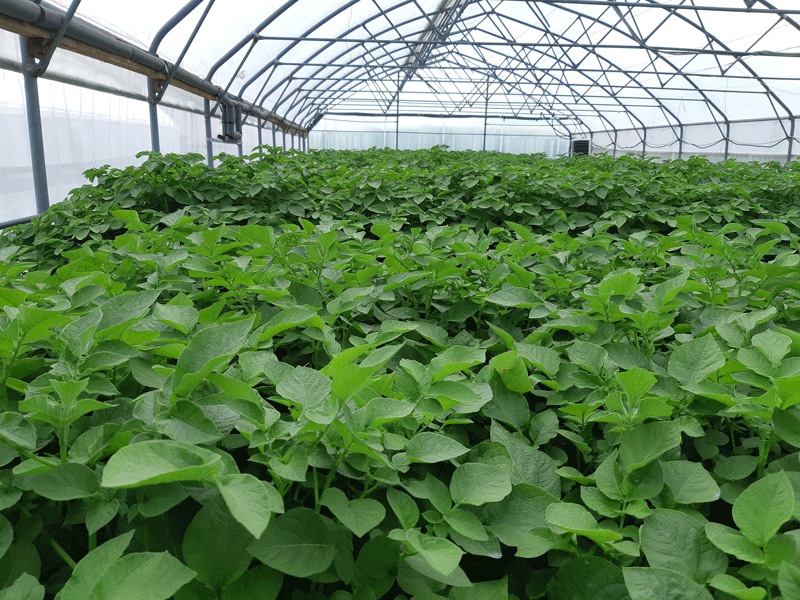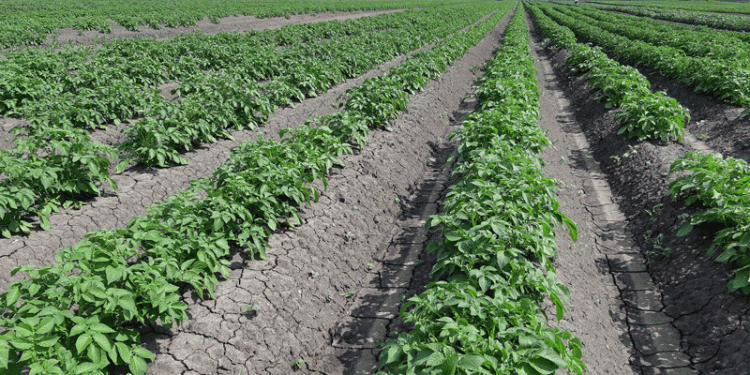The experimental laboratory of the Federal State Budgetary Institution “Rosselkhoznadzor” branch in Krasnoyarsk has concluded its inspections of high-level multiplication seed potatoes. Through cutting-edge in-vitro technology and rigorous field assessments, the program ensures that seed potato varieties remain genetically pure and disease-free. This process secures the region’s agricultural future by producing superior planting material.
Seed potatoes are the backbone of successful potato production, and ensuring their quality is a top priority for agricultural specialists. In the Krasnoyarsk region, the experimental laboratory of the Rosselkhoznadzor branch has completed its annual inspections of seed potato varieties at the highest stages of multiplication, safeguarding the genetic purity and health of this vital crop.
The seed potato journey begins in the laboratory, where meristematic tissues are cultivated using in-vitro technology. This method allows for the production of genetically uniform plant material that is free from harmful pathogens, such as viruses, fungi, and bacteria. Only the original breeders, or authorized entities, are permitted to grow these varieties, ensuring strict control over quality and variety authenticity.
Once cultivated in the laboratory, these microplants are transferred to greenhouses, where they are grown in a controlled environment to produce mini-tubers. These mini-tubers, the first field generation, are then planted outdoors, marking the beginning of the seed potato multiplication process.
The importance of field inspections cannot be overstated. In Krasnoyarsk, original seed potato fields undergo mandatory certification through field surveys that involve visual inspections of plants at various growth stages. These inspections are conducted three times: when plants reach 15-20 cm in height, during the flowering period, and just before the removal of the foliage before harvest. Inspectors assess the variety purity, typicity, and any signs of disease or pest damage.
In 2024, the Rosselkhoznadzor branch inspected a variety of seed potato cultivars, including Innovator, Meteor, Red Scarlett, Sadon, Newton, and many others. These inspections took place both in greenhouses, where mini-tubers are grown, and in fields, where the first field generation of potatoes is cultivated. Noteworthy cultivars under inspection included VR-808, Gulliver, Alaska, and Vega, among others.
To ensure planting material quality, mini-tubers are subject to thorough analysis before planting. This includes a tuber test to confirm their sowing potential. Additionally, in-vitro microplants undergo PCR diagnostics to detect any bacterial or viral contamination, as the presence of these pathogens is strictly prohibited.
These stringent measures are critical for the long-term health of the potato crop. By producing disease-free, variety-pure seed potatoes, the region avoids the spread of infections and contamination in higher-category seeds, such as super-super-elite and super-elite potatoes.

The seed potato quality inspections in Krasnoyarsk highlight the importance of maintaining strict controls at every stage of multiplication. Through in-vitro technology, controlled greenhouse environments, and thorough field evaluations, the region ensures the production of healthy, genetically pure seed potatoes. This attention to detail prevents the spread of diseases and maintains the integrity of potato varieties, securing high yields and quality in future crops.





